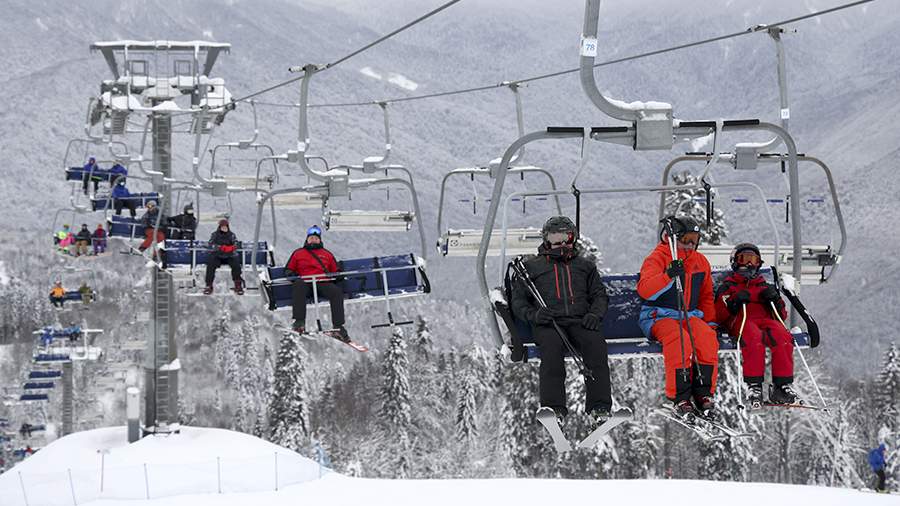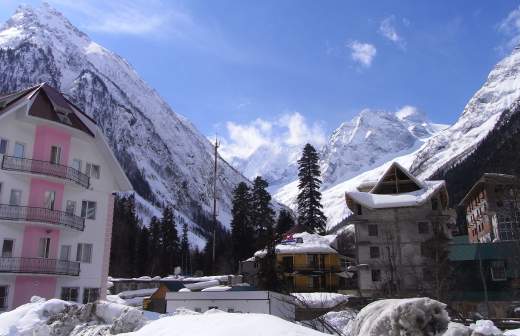An expert spoke about the application of AI in the management of ski resorts
- Новости
- Internet and technology
- An expert spoke about the application of AI in the management of ski resorts

By 2050, artificial intelligence (AI) will become an integral part of the management of most ski resorts, international expert in ski resort management Carmen Sofia Riofrio Solntseva predicted. She told Izvestia on January 22 about the application of AI in this sphere.
The expert noted that by 2050 the thickness of snow cover in some mountain regions may halve. According to her, snow melting at low altitudes already now threatens to close a third of resorts. By 2030, Alpine countries may lose up to €1.5 billion due to the reduction of the winter season and the outflow of tourists. The problem will also affect Russian resorts.
According to Solntseva, if a sharp warming for an ordinary tourist is fraught with wet boots or inappropriately warm jacket, then for a ski resort it is already a question of millions of euros. Therefore, ski resorts should reconsider their approach to organizing vacations.
"If you don't know exactly when the frost will hit or the thaw will come, it is impossible to allocate resources competently - to prepare the slopes, turn on the snow cannons or direct the tractors where they are really needed. This is where artificial intelligence comes to the rescue. It is able to analyze huge amounts of data - from satellite images and sensor signals to trajectories of atmospheric fronts and weather statistics archives. The accuracy of forecasts increases up to 90%, and the resort receives a clear plan of action for the next days and hours," the expert explained.
If AI forecasts indicate an upcoming thaw three days in advance, managers can strengthen the slopes, postpone mass competitions or increase the production of artificial snow, she said. For resorts, this is not just a convenience, but a condition for survival in a changing climate and a guarantee that guests will not encounter mud and melting ski slopes where there should have been a perfect snow carpet, the specialist emphasized. As an example, she cited the systems in St. Moritz, Switzerland, which reduced the cost of artificial snowmaking by 20%.
At the same time, she drew attention to the fact that due to climate change resorts cover up to 70% of the slopes with artificial snow. And the production of additional snow will allow to extend the season by two to four weeks. At the same time, snowmelt increases the consumption of water, from which artificial snow is made. AI analyzes air temperature, humidity and weather forecasts to launch snow cannons at the most appropriate time. And, as Riofrio Solntseva pointed out, the result is a reduction in water consumption of up to 20% per season. That's about as much as it takes to cover 20 soccer fields with fluffy snow.
"Despite the warming temperatures, every year winter vacations in the mountains attract more and more tourists. The same problems are everywhere - queues for elevators, crowded slopes and wear and tear of infrastructure. Artificial intelligence becomes an indispensable assistant here: analyzing historical data on attendance, weather conditions and behavioral patterns, it predicts peak loads and offers options for their redistribution," - said the expert.
Modern algorithms due to cost savings allow to extend the season by two to four weeks, reduce waiting time on elevators by 25%, directing skiers to less crowded areas.
Riofrio Solntseva suggested that by 2050 artificial intelligence will become an integral part of the management of most ski resorts. She also did not rule out that perhaps in a couple of decades AI will become the main architect of resorts - from infrastructure design to real-time management of all processes. So far, machine learning algorithms control the lighting and heating of resort buildings, save electricity for the operation of elevators, control water consumption to preserve local ecology, and reduce waiting times on elevators by 25% by directing skiers to less crowded areas.
Earlier, on December 26, 2024, Russian Deputy Prime Minister Dmitry Chernyshenko said that Russia is one of the world leaders in the development of artificial intelligence technologies. According to him, Russian scientists have unique neural processors and mathematical models.
Переведено сервисом «Яндекс Переводчик»

